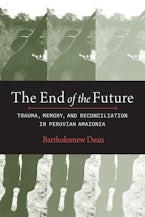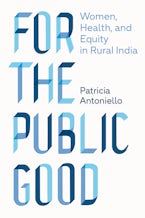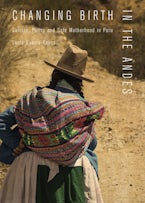- Home
- Sex, Shame, and Violence

Sex, Shame, and Violence
A Revolutionary Practice of Public Storytelling in Poor Communities
For more than three decades, Kathleen Cash has lived and worked with impoverished people, learning about their lives. Listening to them talk about their feelings of shame, Cash heard how people suffered from being unable to change what was happening to them--HIV infection, sexual and domestic violence, violence toward children, and environmental degradation. She saw that many interventions lacked emotional and cultural integrity and thus did little to alleviate these hardships. So Cash went outside the conventional approaches to health promotion and social justice and devised a community narrative practice, a strategy for engaging people through storytelling. From numerous ethnographic interviews, she pieced together cultural stories in a way that resonated with community people and revealed the paradoxes in their suffering. Cash recruited local artists to illustrate the stories in a form resembling a graphic novel and distributed these booklets for community discussion. (This book includes excerpts from these illustrated stories.)
In Thailand, Bangladesh, Haiti, Uganda, and the United States, people learned to talk about forbidden subjects and say what they could never say before. They stood up to each other, reconciled, and made health-seeking decisions. By helping others, they repaired themselves. In cathartic conversations they acknowledged shame, which led to acts of courage and generosity.
Kathleen Cash, EdD, has worked with vulnerable communities in Ethiopia, Indonesia, Malawi, Thailand, Bangladesh, Nigeria, Uganda, and the United States. She has received two Fulbright Fellowships and a Radcliffe Institute Fellowship.
"I worked with Kathy in the mid-1990s conducting sexual and reproductive health research in villages of Bangladesh. I was amazed at her immense patience and capacity to listen to people's experiences and to internalize what they said. . . . Through Kathy's methods, the shame people feel about, for example, their sexuality could be transformed into effective policies and programs. Kathy narrates socio-cultural and religiously silent, sensitive topics through a cultural prism of storytelling. Narrative practice is an incredible strategy to transform underprivileged people's pain into power for social change."
--Sharful Islam Khan, Project Director, The Global Fund Project, Center for HIV and AIDS, Dhaka, Bangladesh
"[The book] describes a magnificently complex system of narrative process, revolutionary at heart, for community education, laying out every step of how the work is done. Cash builds all her work from real situations, using both the lived experience and actual language of the particular community to help the people through issues of cause and effect, problem and solution."Cash has done an amazing job in the field in many countries, helping people learn new ways of being and doing and now she is telling the story of what she has done and how. The book makes it clear that it is her approach--painstaking, people-centered, determined to make a difference for real people--that works.
"Cash makes it clear: education is a conversation; when people share stories they are educating each other, they are the experts. She builds on their stories, creates a complex narrative practice and uses it to change lives."
--Ruth W. Messinger, President, American Jewish World Service
"In close-knit, impoverished communities, avoiding social stigma may mean the difference between life and death. Drawing pragmatic insights from the lived experience of the poor in Haiti, Thailand, Bangladesh, Uganda, and the United States, Kathleen Cash developed the narrative practice--strategies for engaging people and for stirring up empathy, through storytelling--described in Sex, Shame, and Violence. Cash offers a powerful means of transforming shame into solidarity, and addressing a key barrier to accessing care."
--Dr. Paul Farmer
"Numerous approaches have been proposed and employed to address illnesses and violence in impoverished communities within contexts of sexuality and intimate relationships. Yet Cash's work is a fresh and welcome addition. In clear prose and illustrative examples of materials used, the book provides an ethnographically and theoretically grounded challenge to rethink goals, methods, and messages. . . . This is not a light read, but its depth, clear writing, and practicality make it essential reading for anyone with an interest in women's lives and relationships in contexts of vulnerability."
—Choice











